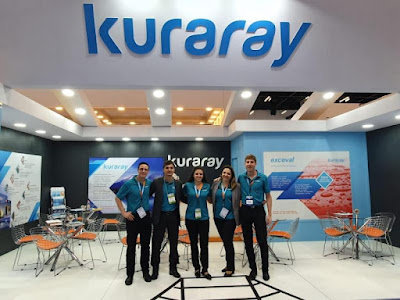Polyvinyl alcohol (PVA) is a remarkable synthetic polymer that has found its way into various industries, thanks to its diverse applications and unique properties. The production of PVA involves a complex process, and several manufacturers worldwide play a pivotal role in ensuring the availability of high-quality PVA powder. In this article, we delve into the world of PVA powder production and highlight some of the leading manufacturers contributing to the growth and innovation in this dynamic field.
Understanding PVA Powder Production:
- Polyvinyl
Alcohol (PVA): A Brief Overview: Polyvinyl alcohol is a water-soluble
synthetic polymer derived from the hydrolysis of polyvinyl acetate. This
transformation results in a versatile polymer known for its excellent
film-forming properties, adhesion, and biocompatibility. PVA is a key
component in the manufacturing of various products across industries,
ranging from adhesives and textiles to pharmaceuticals and construction
materials.
- PVA
Powder Production Process: The production of PVA powder involves a series of intricate steps. It typically
begins with the polymerization of vinyl acetate, followed by hydrolysis to
produce polyvinyl alcohol. The resultant PVA solution undergoes additional
processing steps, including filtration, drying, and milling, to yield the
fine powder form. This meticulous process ensures the quality and purity
of the final product.
Leading Polyvinyl Alcohol Manufacturers:
- Kuraray
Co., Ltd.: Kuraray, a Japanese chemical company, stands as a global
leader in the production of polyvinyl alcohol. With a rich history in
polymer science, Kuraray has mastered the art of PVA manufacturing. Their
Poval brand encompasses a wide range of PVA products catering to diverse
industries, including adhesives, textiles, paper manufacturing, and more.
The company's commitment to research and development ensures a continuous
stream of innovations in the realm of PVA applications.
- Sekisui
Chemical Co., Ltd.: Another prominent player in the PVA manufacturing
landscape is Sekisui Chemical, a Japanese company known for its expertise
in a variety of chemical products. Sekisui's Poval series offers a
comprehensive selection of PVA grades tailored to meet the specific needs
of industries such as packaging, textiles, and construction. The company's
dedication to sustainability is evident in its efforts to develop
eco-friendly PVA products.
- The
Nippon Synthetic Chemical Industry Co., Ltd. (Nippon Gohsei): Nippon
Gohsei, a subsidiary of Mitsubishi Chemical Holdings Corporation, has
established itself as a key player in the production of PVA under the
brand name EVOH. While they are renowned for their ethylene vinyl alcohol
copolymer, their involvement in the PVA sector is noteworthy. Nippon
Gohsei's commitment to technological advancements reflects in the quality
and performance of their PVA products.
- Sinopec-SK
Wuhan Petrochemical Company: Sinopec-SK Wuhan Petrochemical Company, a
joint venture between China Petroleum & Chemical Corporation (Sinopec)
and SK Global Chemical, is a major player in the production of PVA.
Located in China, this company contributes significantly to the global
supply of PVA. Their dedication to sustainable practices aligns with the
growing demand for eco-friendly polymers.
- Acuro
Organics Limited: Acuro Organics, based in India, has emerged as a
noteworthy player in the PVA market. Their PVA products cater to a wide
range of applications, including adhesives, textiles, and construction
materials. With a focus on quality and customer satisfaction, Acuro
Organics has established itself as a reliable supplier in the PVA
industry.
Applications and Innovations:
- Adhesives
and Sealants: PVA powder plays a crucial
role in the formulation of adhesives and sealants. Its excellent bonding
properties make it a preferred choice in woodworking, packaging, and
construction applications. Manufacturers continuously innovate to develop
PVA-based adhesives with enhanced performance characteristics.
- Textiles
and Fibers: The textile industry relies heavily on PVA for its role as
a sizing agent and the production of PVA-based fibers. PVA's ability to
enhance the strength and flexibility of fabrics makes it an indispensable
component in the textile manufacturing process.
- Paper
and Packaging: PVA-coated papers and films are widely used in the
packaging industry. The water-solubility of PVA ensures easy application,
contributing to improved print quality and packaging material strength. As
the demand for sustainable packaging grows, manufacturers are exploring
eco-friendly PVA solutions.
- Construction
Materials: PVA-modified cementitious materials find applications in
the construction industry, where they enhance adhesion, workability, and
durability of concrete. PVA fibers are also used as reinforcements in
concrete to reduce cracking and increase tensile strength.
- Pharmaceutical
and Medical Applications: The biocompatibility of PVA makes it
suitable for various pharmaceutical and medical applications. PVA is
utilized in controlled drug release systems, medical dressings, and as a
coating material for medical devices.
Challenges and Future Prospects:
- Environmental
Concerns: While PVA offers numerous advantages, its water-solubility
can pose challenges in certain applications. Efforts are being made to
develop PVA derivatives that retain the beneficial properties while
addressing environmental concerns related to water pollution.
- Biodegradable
Alternatives: Research is ongoing to create biodegradable alternatives
to traditional PVA, with a focus on maintaining the polymer's desirable
properties while minimizing environmental impact. These innovations aim to
provide sustainable solutions for a wide range of applications.
Conclusion:
Polyvinyl alcohol powder, a product of meticulous
polymerization and processing, stands as a testament to the capabilities of
modern polymer science. The collaboration between leading manufacturers and
ongoing research and development efforts has propelled PVA into the forefront
of multiple industries. As global demand for sustainable and high-performance
materials continues to rise, the future of PVA powder looks promising, with
innovations and advancements anticipated to further expand its applications and
contribute to the evolution of diverse industries.





















.jpg)






